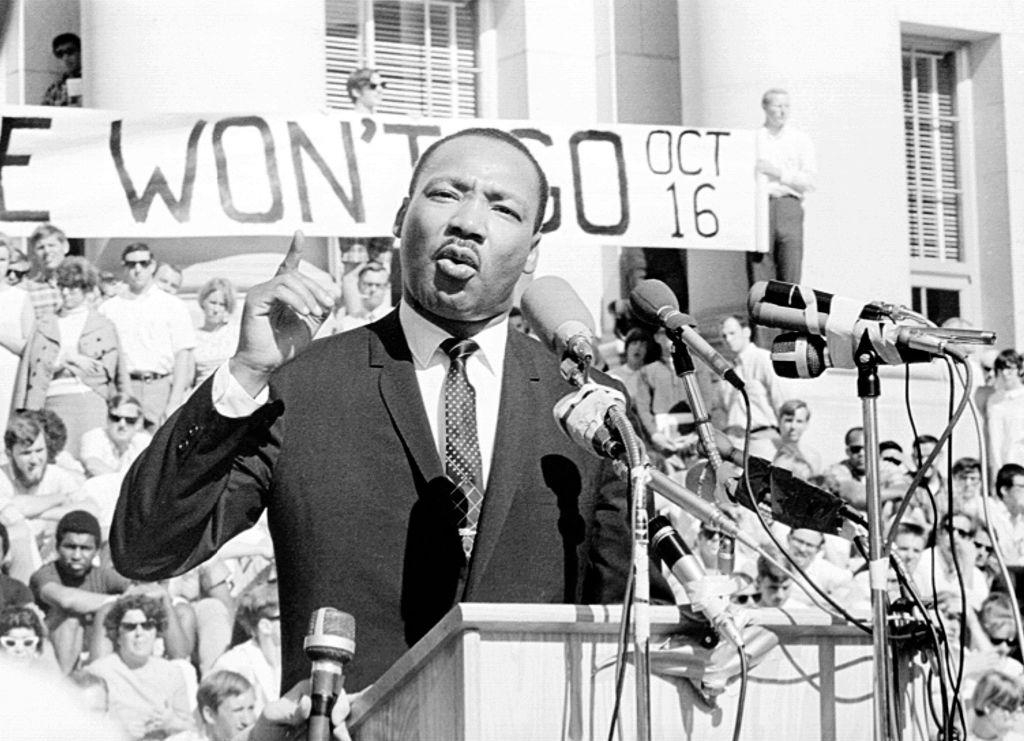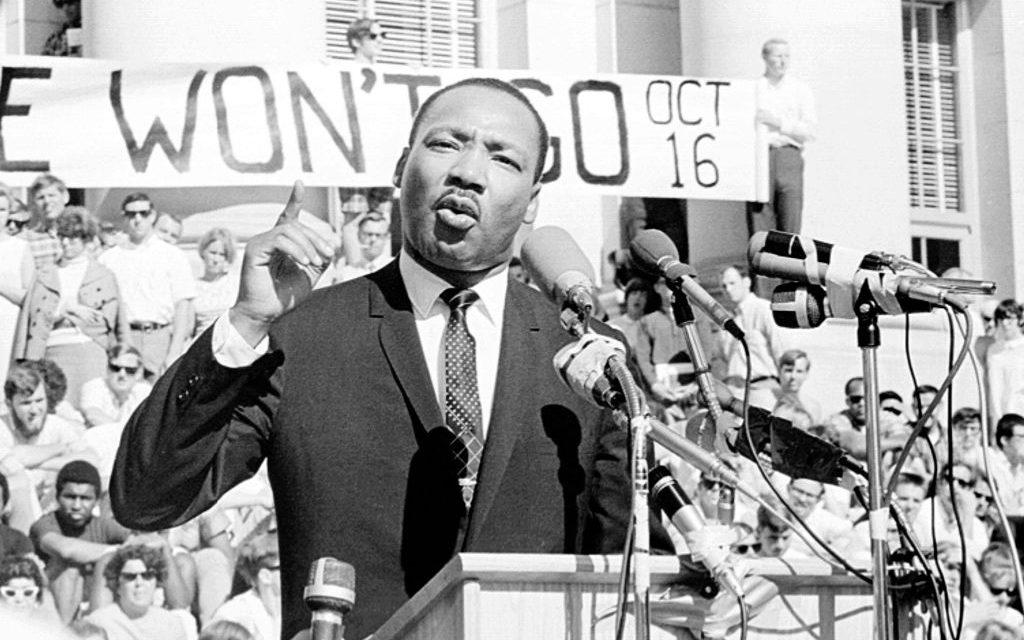
It happens virtually every time a #BlackLivesMatter event makes the news. It happens when a protest is held for racial justice on a college campus or a rally occurs in a public square. And it happens every January, as our country devotes a day to honoring Dr. Martin Luther King Jr.’s memory and legacy: someone offers an out-of-context quote from Dr. King himself that serves to forward a prescriptive opinion they hold about how activists “should” conduct themselves. More often than not, this person is white, and more often than not, they share these thoughts from the comfort of their home and the lens of their privilege. Usually, this commentary is offered as a performative example of what the person believes is “critical thinking.” (Think, “Let’s not forget…” “Activists have lost sight of the goal,” “[activist behavior in the news] was uncalled for/out of line,” etc.)
This is not liberation. This is not allyship. This is not acceptable.
Inherent to this commentary is a dangerous and patronizing message: I understand Dr. King’s message and work better than these [Black] activists do, and I am in a position to tell them where they have gone wrong.
This is a silencing tactic—a person in power dictating to people with marginalized identities what ways of responding to their situation are “appropriate” (a subjective term influenced by our personal culture, experiences, values, and comfort.) This is co-opting a history and a struggle that are not ours. This is white supremacy, and we must recognize and name it as such.
This is co-opting a history and a struggle that are not ours. This is white supremacy, and we must recognize and name it as such. Click To TweetTwo common themes that underlie the arguments frequently made when white people quote Dr. King include: emphasizing sameness over difference; and preaching the necessity of “peaceful” forms of protest above all else. Both mischaracterize and undermine the essence of Dr. King’s life and work.
Emphasizing sameness over difference erases real inequities that Dr. King fought to dismantle and that persist to this day. While we have seen progress, much more remains to be made. Emphasizing our similarities may feel more comfortable than acknowledging differences, but when not accompanied by active acknowledgement of inequities that persist, this discourages progress.
Peaceful protest is important and has its place. However, it is not mutually exclusive with other forms of resistance. While Dr. King spent much of his life preaching nonviolence, he also came to understand the role of other types of disruption as one of few tools available to the most vulnerable to demand attention of the powerful (a part of his legacy which has been sanitized and largely forgotten in collective memory).
Quite often, those quoting Dr. King as a means to comment on activists’ choices are among those who least comprehend these nuances. While many mean well and believe they are exercising critical thought, this is an affront to the tireless work of change agents—most of whom have not only studied and learned from the work of their predecessors, but also understand these realities on a personal level, due to their own identities and experiences.
Next time you encounter an activist action that you may view as “unproductive,” I invite you to ask yourself: why might this person or group see this action as necessary? What privileges do I hold that may prevent me from fully understanding their experience or decision? What may I need to reflect upon or learn more about before I can respectfully engage in thoughtful and informed discussion about this topic?
Next time you encounter an activist action that you may view as “unproductive,” ask yourself: why might this person/group see this action as necessary? What privileges do I hold that may prevent me from fully understanding their… Click To TweetWe owe it to the legacy of Dr. King and his fellow civil rights leaders to pause, reflect, and learn from our cultural others, and to speak up when we encounter narratives that threaten this work and the progress that is yet to be made.
We owe it to the legacy of Dr. King and his fellow civil rights leaders to pause, reflect, and learn from our cultural others, and to speak up when we encounter narratives that threaten this work and the progress that is yet to be… Click To Tweet


![I Am [From] Woman: An Ode From a Man](https://theinclusionsolution.me/wp-content/uploads/2017/03/i-am-from-women-620x330.png)















